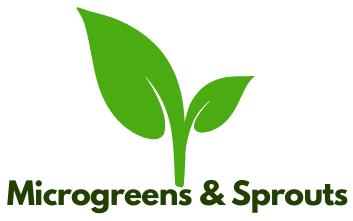Sunflower
Sunflower Seeds
Sunflower seeds are the edible seeds of the sunflower plant (Helianthus annuus). When sprouted, these seeds transform into crunchy, nutrient-rich sprouts with a mildly nutty flavor. Sprouted sunflower seeds are popular for adding texture and nutrition to salads, sandwiches, and snacks.
History of the Seed
Sunflowers originated in North America, where indigenous peoples cultivated them as early as 3000 BCE. The seeds were traditionally used for food, oil, and medicinal purposes. Sprouting sunflower seeds is a more recent trend tied to the health food movement, promoting fresh and living foods.
Nutritional Information
Per 100 grams of sprouted sunflower seeds:
- Calories: ~140 kcal
- Protein: 8-10 g
- Fat: 8-10 g (mostly healthy fats)
- Carbohydrates: 6-8 g
- Fiber: 2-3 g
- Vitamins: Rich in Vitamin E, B-complex vitamins (especially B6 and folate)
- Minerals: High in magnesium, selenium, copper, zinc, and iron
Nutrition Benefits
- Rich in antioxidants: Helps fight oxidative stress.
- High protein content: Supports muscle repair and growth.
- Good source of healthy fats: Promotes heart health.
- Supports digestion: Fiber aids gut health.
- Boosts immune system: Vitamins and minerals enhance immunity.
- Anti-inflammatory properties: Helps reduce inflammation in the body.
Sprouting Process and Directions
Soak Time
Soak raw, unsalted sunflower seeds in clean water for 8-12 hours.
Rinse Time
Rinse seeds thoroughly with fresh water 2-3 times daily.
Growing Time
Allow seeds to sprout in a well-drained container or sprouting tray at room temperature (65–75°F / 18–24°C).
Harvest Time
Sprouts are ready to harvest in 2-4 days when they reach about 1-2 inches long.
Yield
From 1 cup of dry sunflower seeds, you can expect approximately 3 cups of sprouts.
Days to Sprout
Typically 2 to 4 days.
Best Growing Methods
- Use a wide-mouth jar with a mesh lid or sprouting trays for good air circulation.
- Keep the sprouts out of direct sunlight during the initial sprouting phase to avoid bitterness.
- After the initial sprouting, exposing them to indirect light for a day or two can help green the sprouts slightly.
- Ensure thorough rinsing to prevent mold growth.
Storage
- Store harvested sprouts in a sealed container in the refrigerator.
- Consume within 3-5 days for best freshness and nutrition.
- Avoid excess moisture in storage to prevent spoilage.
Using the Ready Sprouts
- Add raw to salads, sandwiches, and wraps.
- Use as a crunchy topping on soups and grain bowls.
- Blend into smoothies for added nutrients.
- Incorporate into stir-fries (lightly cooked) or omelets.
Helpful Tips
- Use only raw, untreated seeds labeled for sprouting. Avoid roasted or salted seeds.
- Rinse sprouts thoroughly before eating.
- If any off smell or sliminess occurs, discard the batch.
- Rotate containers during sprouting for even growth.
- Keep your sprouting area clean to reduce contamination risk.
Did You Know?
Sunflower sprouts contain enzymes that can improve digestion and help your body absorb nutrients more efficiently compared to unsprouted seeds.
